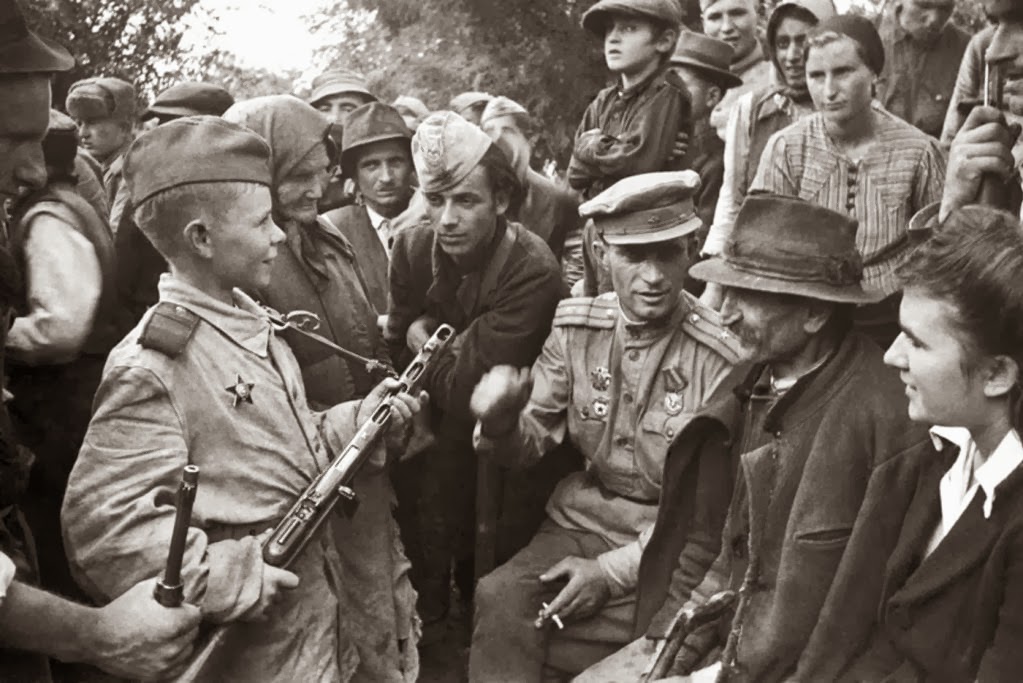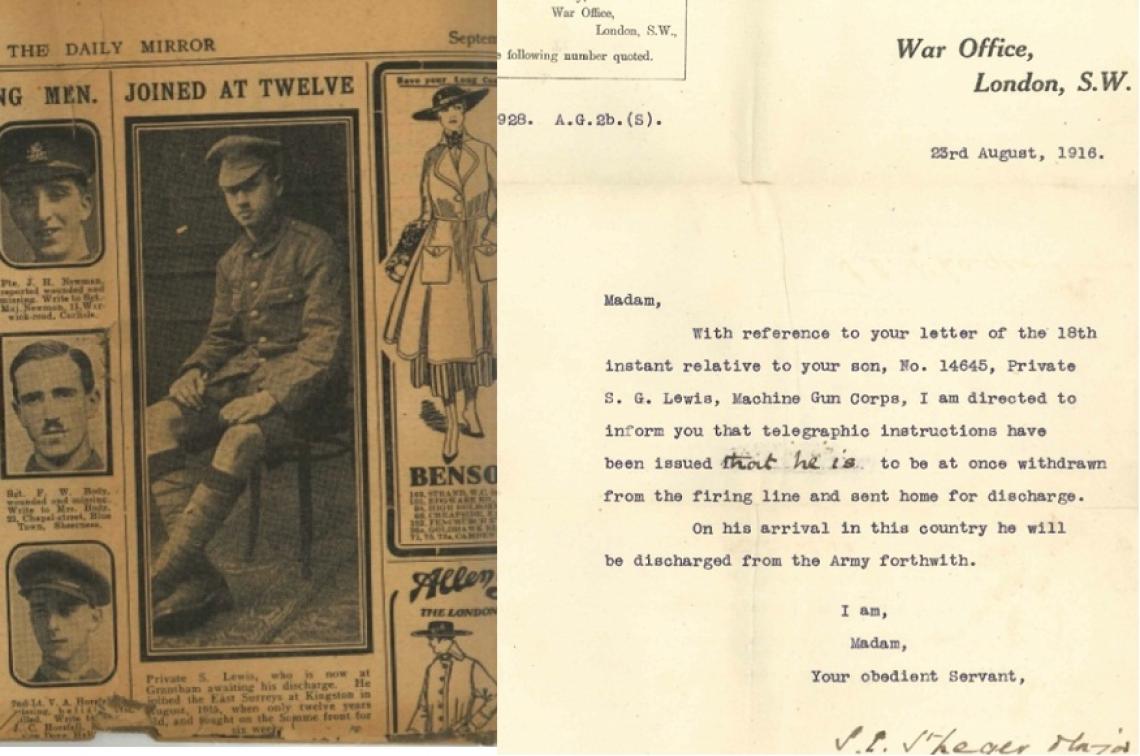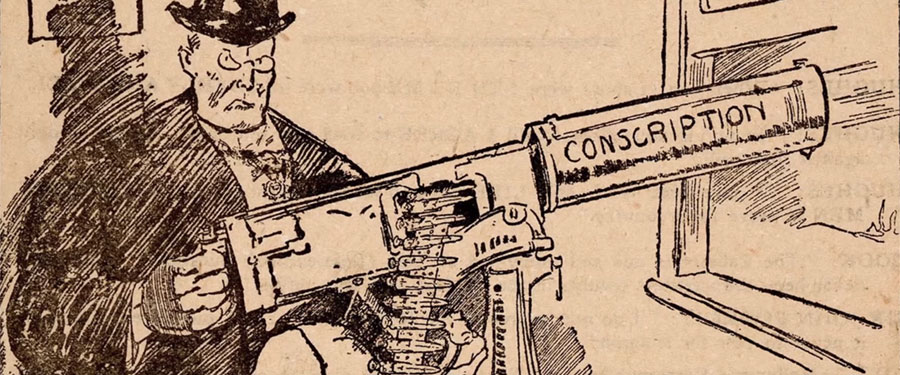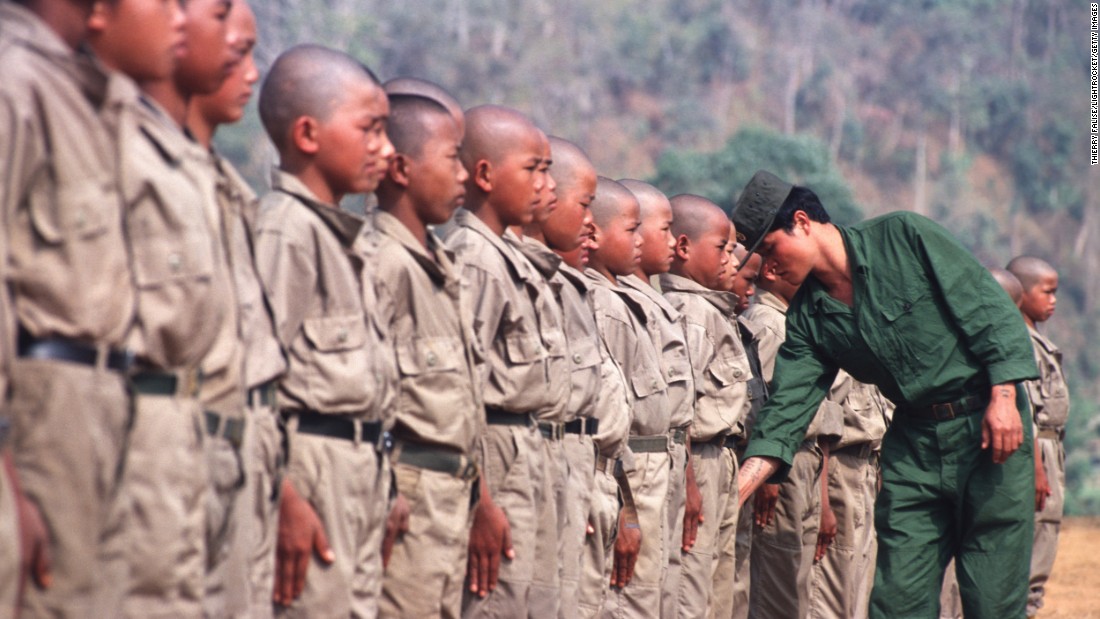During WWI, England had an estimated 250,000 underage soldiers fighting for the allies. They corrected the issue in time, but at one point they sent one in five soldiers home after a month because they were either too small to fight or underage.

Boys enlisting for war is as timeless as the first fistfight that broke out at the caveman’s schoolyard. In many ways, teenage boys are better equipped to fight than their more mature counterparts. They have no children from which death can take them, no wives to miss. They haven’t yet experienced how tough the big world can be. Their ignorance of life protects them from the fear they should feel, right up until that first exchange of gunfire.
In the movie Apocalypse Now, Lawrence Fishburne plays the character of an underage soldier in Vietnam. His character is only sixteen, somehow enlisted and on the front lines. As a point of ironic trivia, Fishburne was himself too young for the battle. He lied about his age to get the part, as he was only 14 when production began. It seems boys will even lie to get parts in movies about being soldiers.
This happened not as a matter of need, but complacency on the part of officials, parents, and teachers. The 1916 conscription put a stop to much of this, but it was too late for many boys. The most interesting story among them is the one about Sidney Lewis, the youngest boy to ever enlist at age twelve.
Sidney Lewis

The letter from Lewis’ mother to the war office wasn’t enough to keep him out of battle. He came home at age thirteen, but five years later he re-enlisted, now old enough to enlist without Mom’s consent.
By that time he’d already fought in the Battle of the Somme and the Battle of Melville Wood. He’d already fought with grown men, alongside grown men, in the Machine Gun Corps.
It was, perhaps, Lewis stature that allowed him to fly below the radar. The minimum height for soldiers at that time was five-foot-three. Nobody knows how tall he was at enlistment, but “tall enough” worked. By the time he was an adult, Lewis was six-foot-two, so no surprise he was a tall twelve year old.
Despite all the action, and despite seeing so much at such a ripe age, Lewis lived until 1969. For a time after the war, he worked as a policeman. He also ran a pub in East Sussex.
The question that remains is, if Lewis’ mother didn’t want him on the front lines, then how did he get there?
Don’t Ask Don’t Tell

That policy was actually an American policy, just about as silly, with the same mentality. When it comes right down to it, ready, willing and able (RWA) count for more than anything else. The more RWAs you have, the better your chances of winning. Everything else is secondary when the bullets start flying.
During the Great War, the official recruitment age was 18. You had to be 19 to fight overseas, but that was a detail rarely examined during the medical exam. If a soldier were the right height and wanted to fight, why stop him?
According to the BBC, it was a conspiracy of many. Recruitment officers were underpaid. The boys who came through were often from situations that were worse than war. At least the war Machine would feed you, get you out in the fresh air, keep you moving for the most part.
It wasn’t just the boys who wanted out of their tough home lives. Parents too made the mistake that war would be better than where they were. Some foolishly believed the war would end before the boys hit the front lines.
1916 Conscription

By 1916, the war office announced that parents could write letters to officials announcing that their child was too young to enlist. In some cases, it was too late. For Fred Bird, underaged soldier, the letter from his Mom was received in time to get him off the front line.
It was as he waved goodbye to his war comrades on the front line that shell fire ended his life.
In other cases, the requests for boys to return were flat out denied, especially if the boy wanted to stay at war. If a boy wanted to fight, if he was well enough to do so, then it was in the best interest of the war effort to let him stay.

While the developed world may finally have our collective act together on this issue, the larger world of war knows no minimum. In the undeveloped world, underage fighters are common. They are not only enlisted, they are born for battle, cultivated from birth.
What is perhaps even more disturbing than sending an ignorant boy to the from lines is the death of boys and girls who never had a choice.
As judgemental as history is with stories like Sidney Lewis, it is shuddering to imagine how future historians will talk about the modern practices of child soldiers. IMHO: We’ve got a long way to go before civilized is the right word to describe humanity.